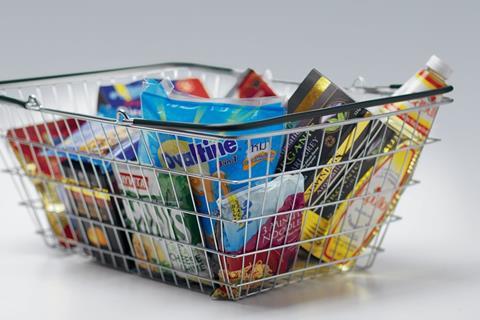
Top story
Associated British Foods (ABF) has reported a rise in profits as it delivered a “resilient performance” offsetting ongoing troubles at its Sugar division.
Adjusted operating profits were up 1% to £1.42bn in the year to 14 September 2019 and up also by 1% on a constant currency basis.
Adjusted pre-tax profits rose 2% to £1.40bn on group sales up 2% (2% at constant currency) to £15.8bn.
However, statutory profit before tax dropped 8% to £1.17bn, impacted by losses on sale and closure of businesses. Statutory operating profits were hit by a £79m exceptional charge, falling 5% to £1.28bn.
Revenues rose 2% during the year to reach £15.8bn, benefiting from growth in the company’s Grocery unit and fashion chain Primark.
Overall group performance was lifted by “strong growth” in its grocery division, generating revenues of £3.52bn, up 3% on the prior year, and adjusted operating profits rising 13% to £380m, driven by “excellent performances” at George Weston Foods in Australia, ACH in the US, Acetum and Twinings Ovaltine.
Twinings delivered “good revenue growth” helped by the success of its Cold Infuse teas in the UK and Australia and the development of a new herbal tea range. Ovaltine sales growth benefited from product launches in Switzerland and good growth in Thailand, China and Myanmar.
Allied Bakeries revenues increased this year after the company agreed higher prices with a number of customers. However, due to the loss of its “largest” own-label bread contract, the company recognised a non-cash impairment charge of £65m as volumes were expected to slump in the coming financial year.
Jordans, Dorset Cereals and Ryvita delivered improved manufacturing capability, while AB World Foods enjoyed “a record year” with strong growth both in the UK and internationally.
Acetum, the Modena-based balsamic vinegar business, saw margins improve “significantly” as grape must prices fell.
Meanwhile, at ABF, struggling sugar division operating profits were down “significantly”, dropping 79% to £26m due to a further decline in EU sugar prices last year from a combination of oversupply and the end of the EU sugar regime. Revenues reduced 7% to £1.61bn.
However, the company noted that sugar prices have since increased, with the company expecting a “material increase” in sugar profits next year.
Sales at its key Primark clothing retail division were 4.2% ahead of last year at actual exchange rates and 4.1% ahead at constant currency, driven by increased selling space offset by a 2% decline in like-for-like sales. Operating profit margin increased to 11.7% from 11.3% and, consequently, adjusted operating profit increased 8%.
Looking ahead, the company expects further profit and margin growth in grocery, with Twinings Ovaltine benefiting from a more efficient tea supply chain.
Primark will continue to increase its store estate with further openings in France and Spain. However, sterling weakness is expected to result in a margin decline at the fast-fashion chain in the first half of the year.
CEO George Weston said: “The Group delivered a resilient performance this year, with strong profit growth from grocery and Primark which more than offset the profit decline in sugar.
“We continued to pursue opportunities to grow our businesses with a gross investment of over £800m. Next year the group is well-positioned for further progress, with the continued expansion of Primark, a material improvement in our sugar profit and strong profit growth in grocery.”
Morning update
Imperial Brands (IMB) said its full year operating profits fell 8.7% to £2.2bn as its major investment in next generation products failed to deliver the growth it expected.
The tobacco-giant said revenue was up 5.1% to £31.6bn for the year to 30 September. It pointed to challenging market conditions for vaping products, particularly in the US, as reasons for not hitting its growth targets.
Chief executive Alison Cooper, who said last month that she intends to step down as soon as a suitable successor is found, said Imperial was now resetting its investment plans in terms of NGP for the year ahead.
She said: “2019 has been a challenging year with results below our expectations due to tough trading in next generation products (NGP). We are implementing actions to drive a stronger performance in the coming year.
“Our resilient tobacco value creation model continues to produce high margin sales growth and is well-placed to deliver sustained profitable growth in the years ahead.
“Although we grew NGP revenues by around 50%, this was below the level we expected to deliver. Our delivery was also impacted by an increasingly competitive environment and regulatory uncertainty in the USA. Growth in Europe was also slower, despite achieving leading retail shares in several markets. We have taken the learnings from this year to reset our NGP investment plans for 2020, prioritising the markets and categories with the highest potential for sustainable, profitable growth. We will scale up investment as the visibility on returns and regulatory uncertainties improves.
“Our priority going forward is to optimise the profit and cash generation from our tobacco assets, while improving growth in NGP with greater discipline and a more tightly focused business model that will create long-term value for shareholders.”
As a result of this reset Cooper said the business was taking a “more cautious approach to our outlook for 2020, with low single digit revenue and earnings per share growth expected, excluding any impact from the divestment programme. Performance is expected to be weighted to the second half as the benefit of our NGP investment reset takes effect through the year.”
Cooper did not give any indication of how the succession process was going. However Imperial did confirm that Thérèse Esperdy, currently senior independent director, will succeed Mark Williamson as chairman on 1 January.
The board said: “Thérèse has made a significant contribution to Imperial since she became a non-executive director in 2016 and the board is delighted that she has agreed to succeed Mark as chairman. Her international executive experience and the acute understanding she has of the business, the sector we operate in and the concerns of investors, many of whom were consulted during the recruitment process, is invaluable. Today’s announcement provides stability through the chief executive officer recruitment process, which is a key priority for Thérèse.”
Esperdy said: “It is a privilege for me to step up as chairman at Imperial, a company with a rich heritage, some great brands and tremendous people. Clearly this is a challenging time, but there are many opportunities ahead and I am looking forward to working closely with the team to drive the business forward and create value for our shareholders.”
German meal kit delivery business HelloFresh (HFG) said it was looking to post its first full-year break-even after reporting the second consecutive quarter of profit growth.
The company said it “continued to show outstanding performance” in the third quarter, with revenues up 46% to €441m as the number of active customers rose 42% to 2.6 million.
Adjusted earnings before interest, taxes depreciation and amortisation came in at €15.5m for the three-month period versus a €26m loss last year. Margins rose to 3.5% from a negative 8.6% last year.
For the full-year, the meal kit delivery company expects revenues to rise between 31% and 33% and guided for positive adjusted EBITDA margin of 0.50% to 1.75%.
“Our very strong third quarter demonstrates well how far we have come,” co-founder and CEO Dominik Richter said.
“We continue to offer an ever widening and improving assortment of meals and products. At the same time, our meal kits have a positive impact on the environment by significantly reducting food waste and carbon emission that are inherent to traditional food supply chains.
“Finally, we have yet again proven that we can tun the business in a very profitable manner while increasing market share and customer satisfaction.”
On the markets this morning, the FTSE 100 has opened marginally higher at 7,376.19pts.
ABF shares were trading 4.3% higher at 2,345.50p while Imperial Brands shares fell 0.3% to 1,732p.
Other risers include British American Tobacco (BATS) up 0.5% to 2,801p and Cranswick (CWK) up 1.1% to 3,204p.
Fallers included Ocado (OCDO), down 0.8% to 1,339p, Fevertree (FVER) down 1.1% to 1,799.50p and Hilton Food Group (HFG) down 1.4% to 1,006p.
Yesterday in the City
The FTSE 100 started the week on a high note, closing 0.9% higher at 7,369.69pts as global investor sentiment picked up.
Risers included Sainsbury’s (SBRY) closing 1% higher at 206.60p, Marks & Spencer (MKS) up 3% at 185.10p, British American Tobacco (BATS) up 1.3% at 2,777p, Tesco (TSCO) up 0.6% at 239.40p and Just Eat (JE) up 0.4% at 740p.
Closing in the red, Diageo (DGE) fell 0.5% to 3,137p, Fevertree (FEVR) closed 4.9% lower at 1,822.50p and Greggs (GRG) was down 2.8% at 1,755p







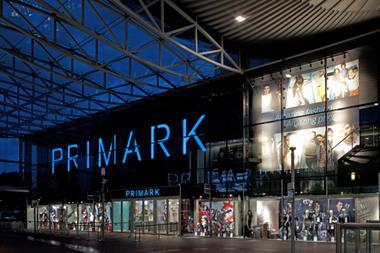
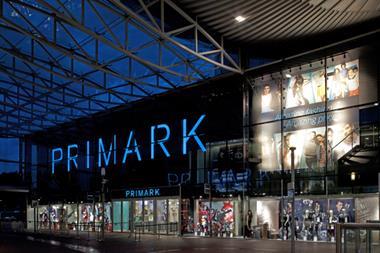
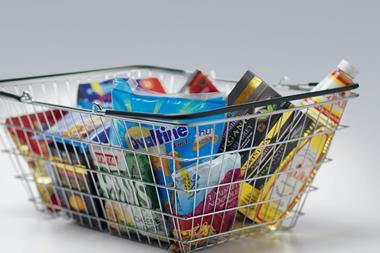

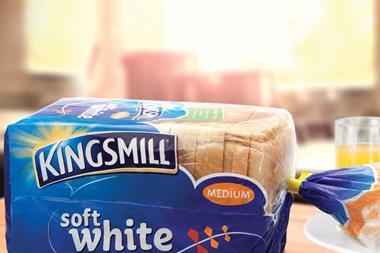







No comments yet